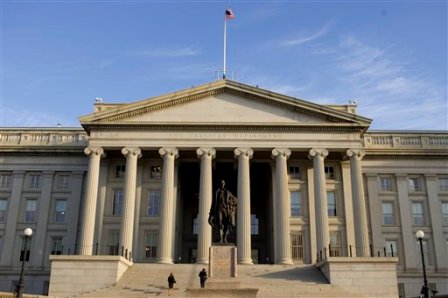So far, the unwinding of the government's stakes in once-distressed banks has paid off handsomely for the U.S. taxpayer. The profit on the planned sale of Citi stock should be the topper.
Maybe Uncle Sam knows something about investing in troubled companies after all.
The U.S. government, which announced Monday that it plans to slowly unload its 27% stake in Citigroup Inc. over the remainder this year, currently stands to pocket an $8 billion profit on the investment from last September. That's a remarkable 30% return in six months, or triple the return generated by the average hedge fund manager investing in distressed securities, according to data from Hedge Fund Research Inc.
Of course, the value of the government's huge stake in Citi could fall by the time it's all sold. After all, the U.S. Treasury is proposing to sell a whopping 7.7 billion shares, which would be the second-largest stock sale of any kind ever.
In addition, the government's adviser, Morgan Stanley, will take its cut. Banks pocket average commissions of 3.6% on stock sales, according to Bloomberg data, though it seems likely the firm will accept a lower fee in this highly watched case. Morgan Stanley's fees and other details of the transaction will be released within 48 hours, the Treasury Department promised.
The sale illustrates how quickly and dramatically Citi and other big financial institutions have rebounded from their near-death experiences. Last fall, the government formally converted its $25 billion preferred stake in the bank into common Citi shares. The effective purchase price at the time was $3.25 a share; today, Citi trades for about $4.20 a share.
While the government acquired preferred shares in scores of institutions during the bailouts of 2008 and 2009, Citi was the weakest of the bunch and the only one to convert Uncle Sam's preferred stock into common equity to shore up its capital base.
Since then, however, Citi has repaid a $20 billion federal loan it took in late 2008 and now stands to be free of government ownership by the end of this year.
U.S. taxpayers have so far lost money on only one company they bailed out—CIT Group. The government's $2.3 billion investment was wiped out when the lender filed for bankruptcy last year.
[This story first appeared in Crain's New York Business, a sister publication of InvestmentNews.]







